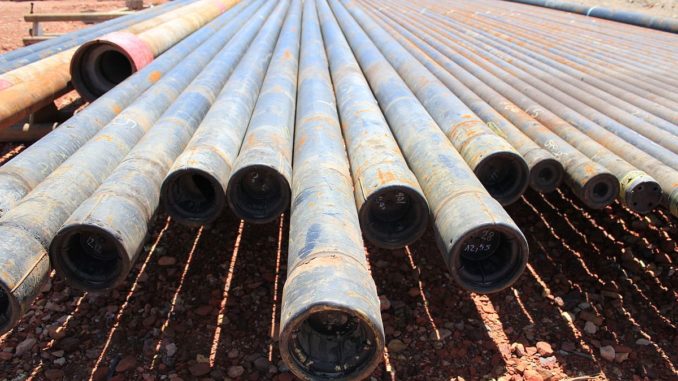
Energy Giants Cancel Controversial $8B Atlantic Coast Gas Pipeline
Dominion Energy and Duke Energy have abandoned plans to complete construction of the estimated $8-billion Atlantic Coast Pipeline, ending a controversial seven-year quest to build the 600-mile natural gas pipeline between West Virginia and eastern North Carolina.
In a July 5 statement, the companies said that the project’s economic viability was threatened by “ongoing delays and increasing cost uncertainty” resulting from an April 15 ruling by a federal judge in Montana preventing use of the U.S. Corps of Engineers’ fast-tracked Nationwide Permit 12 process for constructing new oil and gas pipeline water crossings.
Although the case involved the Keystone XL pipeline, the decision applies to all other oil and gas pipeline projects in the U.S.
A subsequent ruling by a federal appeals court dimmed prospects of a successful appeal, presenting “new and serious challenges,” the statement added, given the potential to similar legal challenges to permits issued under the nationwide program, including those for the Atlantic Coast Pipeline.
Spotlight on Orphan Wells Abandoned in America
Kathleen Sgamma, Western Energy Alliance gives an overview of the orphan/abandoned will issues in the United States.
“Assets just do not go away. If a company does become insolvent and actual shut its doors, it doesn’t mean those wells are just abandoned,” Sgamma said. “First of all what a company in distress is going to do is sell assets, so there is almost always a company that is acquiring. When one company is in trouble that presents opportunities for other companies. In general, assets are then sold or picked up by another company who is responsible.”
Sgamma cautions that this is not an one-size fits all type of issue. There are some instances where special attention is needed, and more importantly given.
“There was an issue in Wyoming where coal bed methane wells just became totally non-economic with the price crash in 2008, and that is a specific issue that Wyoming is working through,” Sgamma said. “That was specific to coal bed methane, I mean nobody drills coal bed methane wells anymore.”
Cleanest Refinery On Earth
Meridian Energy Group, Inc. announced that the North Dakota Supreme Court has upheld the earlier decision of the North Dakota District Court refusing to overturn the issuance of the air quality Permit to Construct (“PTC”) for the Davis Refinery by the North Dakota Department of Environmental Quality (“DEQ”). This Decision marks the end of the litigation process with respect to the Davis PTC, which was issued in June, 2018, after a rigorous 18 month review by the DEQ.
In issuing the PTC, the DEQ found that the emissions from the Davis Refinery would be substantially below stringent federal standards, and would be monitored to such an extent that the refinery qualified as a Synthetic Minor Synthetic Source. This finding, which has now been confirmed by North Dakota Supreme Court, was a first for a full-conversion refinery and was hailed as “historic” by major industry commentators.
Keystone Pipeline Invokes Force Majeure
U.S. pipeline company Energy Transfer (ET.N) has taken the rare step of invoking force majeure – normally used in times of war or natural disaster – to prevent oil firms from walking away from a proposed expansion of the controversial Dakota Access pipeline, according to two sources familiar with the matter.
Energy Transfer wants to nearly double the size of the line, and some companies that signed up say it is no longer necessary due to the sharp fall in U.S. oil production after the coronavirus pandemic. North Dakota is one of the costliest spots in the United States to produce crude, and its output has dropped by about one-third from last year, more than most other oil-producing states.
DAPL is the largest pipeline running out of North Dakota’s Bakken shale basin. It has capacity to ship 570,000 barrels per day (bpd) of crude to its endpoint in Illinois. Users say an expansion to 1.1 million bpd is unlikely to be filled because the state’s production is not expected to rebound soon.
The Crude Life Podcast can be heard every Monday through Thursday with a Week in Review on Friday.
Spread the word. Support the industry. Share the energy.

